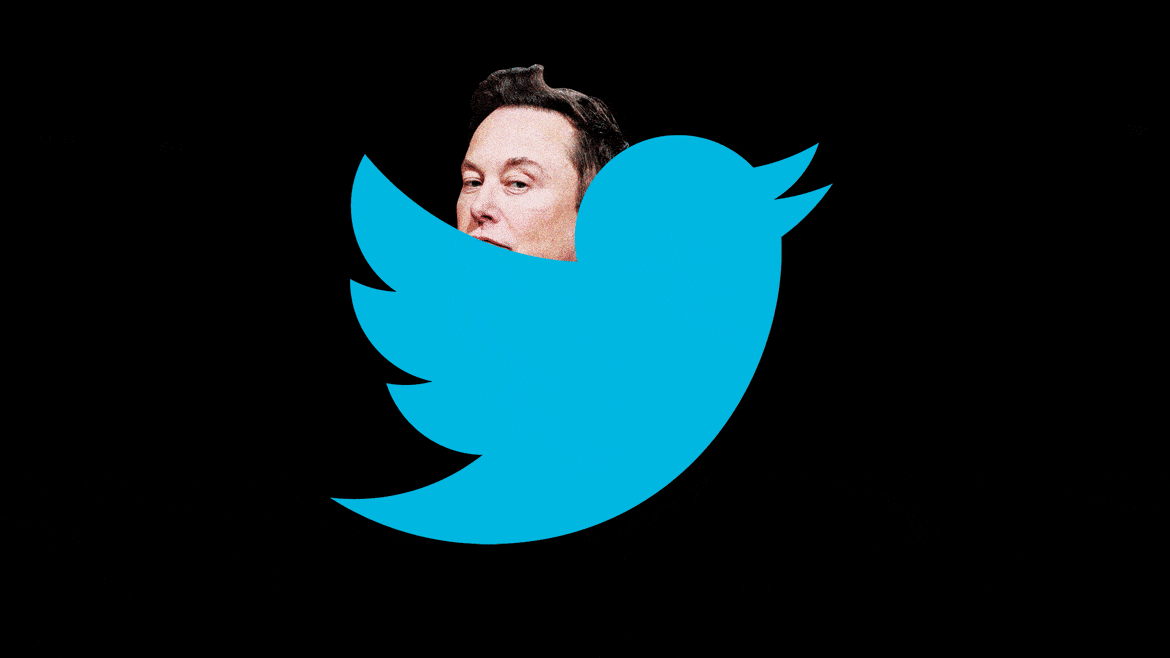Elon Musk’s Twitter Cannot Handle the Vortex of Misinformation During an International Crisis

Two Polish farmers were killed earlier this week by what was described by some as a “Russian missile strike”—an event that triggered instant speculation that this “attack” would draw NATO into full-scale war with Russia.
Perhaps nowhere was this panic more acute than on Twitter. Almost immediately after the news broke, #WWIII began trending on the platform, buoyed by a bevy of Gen Z doomer memes, the conspiratorial missives of alt-right YouTubers, misspelled rants of Russian and Ukrainian bots, hysterical warnings from Ukrainian government officials, and more measured assessments from security experts in the U.S. and Poland.
Elon Musk Tries Out a New Conspiracy Theory
Normally, this would be business as usual for the social media platform—nearly any news item generates a maelstrom where misinformation and information become hopelessly tangled. Yet, this time was different. It was the first major geopolitical event to occur under Elon Musk’s new Twitter regime: one that has gutted misinformation monitoring and, most notoriously, briefly “democratized” the “official” blue-check system by allowing any user to pay $8 to be “verified.”
Although Musk has been consistently warned that his changes would make Twitter less safe, he has remained brazenly defiant. And for a while—when the biggest consequence of these policies was a meme of Super Mario giving us the finger—the CEO’s ineptitude was hilarious. However, the dangers of this everyone-gets-a-blue-check free-for-all soon became apparent when a fake tweet about an alleged insulin price change tanked the stock of pharmaceutical giant Eli Lilly last Thursday, cutting approximately $15 billion off its market cap. While I’m generally not in the business of fretting over the financial health of fabulously wealthy pharmaceutical executives, the whole affair starkly illustrates the ease with which fake tweets can generate disastrous real world impacts.
Unfortunately, the Eli Lilly fiasco could be a comparatively minor precursor to the kinds of future disasters that may loom under Musk’s Twitter ownership.
After this week’s crisis in Poland, it is clear that the Tesla CEO’s stewardship of Twitter is no longer funny. Indeed, the recent incident in Eastern Europe makes it obvious that Twitter under Musk may well be a threat to national and global security (as President Joe Biden seemed to realize last week), particularly in a world increasingly marked by geopolitical turmoil.
David Mack, a senior breaking news reporter at BuzzFeed, tweeted yesterday about how difficult Musk’s new Twitter rules have made it to convey accurate and timely information in a crisis, a sentiment echoed by a number of journalists. “World war three is maybe breaking out and I am here clicking on accounts’ verified checks to see where they’re officials or Twitter blue subscribers,” Mack wrote. The tweet was probably meant to be funny, but it was also terrifying—because it was true.
You’ll Be Just Fine if Twitter Dies
As of this afternoon, the “Russian missile attack” was revealed to have been accidentally caused by Ukrainian forces. Woops.
But this incident should still compel us to consider a pressing question: what if it had been more serious? How would Twitter under Musk manage the information vortex in the event of a real national or global emergency? With almost no staff left in charge of content moderation, the Poland missile incident reveals that this version of Twitter is not equipped to handle a real international crisis.
Imagine this scenario: In response to a Ukrainian attempt to retake occupied Crimea, Russia delivers a tactical nuclear strike in a bid to “escalate to de-escalate”—something U.S. officials have been worried about for months. Within minutes, videos of a massive bright flash begin circulating online. Soon after, #nuclearwar begins trending on Twitter (again). Public health experts and government officials start using the platform to convey critical safety information to those affected, advising anyone within a 60-mile radius of the blast to shelter in a basement, take a shower with shampoo, and not to use conditioner.
At the same time, a slurry of Russian bots and various trolls spread contradictory information.
Elon Musk’s Secret Obsession Explains Everything He Does
Some claim the blast to be a hoax or a Ukrainian “false flag” operation. Others convey fake public health advice designed to make the effects of the radiation worse. (“Seek shelter in your vehicles!” “Take a shower with plenty of conditioner!”) A half-hour later, a fake account impersonating Joe Biden tweets: “Russia has initiated a massive strategic nuclear strike against the United States. Bombs arriving in twenty minutes. Take shelter immediately,” leading hundreds of Americans to commit suicide rather than suffer the effects of the nonexistent nuclear Armageddon.
Such a scenario may sound far-fetched, but it is far from impossible. In the event of an acute international crisis, it is also far from unlikely.
As I have previously written, Elon Musk has a misplaced, megalomaniacal obsession with saving humanity from global threats. Yet, his overhaul of his new social media toy has made us all less safe. At a moment when geopolitical instability and social media instability are colliding, Musk’s platform makes an already dangerous 21st century all the more precarious.
Twitter is promising a return to normalcy by the end of the month, when a new verification system will allegedly be put in place. We should all cross our fingers that nothing existentially threatening takes place on the world stage before then.
Get the Daily Beast's biggest scoops and scandals delivered right to your inbox. Sign up now.
Stay informed and gain unlimited access to the Daily Beast's unmatched reporting. Subscribe now.
